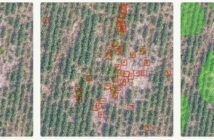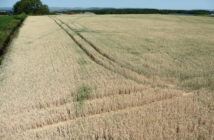Scientists have welcomed the Precision Breeding Act coming into force, saying it marks a major policy shift for UK agriculture and consumers.
The Act, which received Royal Assent last year, allows precision-bred crops – developed through targeted genetic changes equivalent to natural breeding – to move from research into commercial farming. The imminent implementation of the Genetic Technology (Precision Breeding) Act 2023 represents one of the biggest policy changes in UK agriculture for a generation.
The change will speed up access to improved plant varieties, helping to reduce yield losses from drought, pests and disease, and cut reliance on fertilisers and pesticides, helping UK farmers produce more resilient, sustainable crops while supporting food security and environmental goals.
Rothamsted interim CEO Prof. Patrick Bailey, commented: “This new legislation will help pump new technologies into the UK’s agricultural R&D sector. We are excited by the opportunities it will bring.”
Consumer gains
As well as benefiting farmers, consumers will gain too. Crops can be improved for better nutritional content, such as healthier oils, increased fibre, or enhanced vitamins.
It will also offer more resilience, ensuring more stable harvests and protection against global supply shocks. Prof. Nigel Halford, senior crop scientist at Rothamsted, added: “This is a hugely important event as we move towards enabling this powerful technology to be used for the benefit of our farmers and consumers.”
However, the bill hasn’t been met with universal approval. The Soil Association has concerns over the labelling of gene-edited foods, meaning businesses and consumers will be required to make their own efforts to find out whether something contains PBOs (Precision Bred Organisms).
It also has concerns about the infrastructure regarding the separation of organic foods, which it views as lacking. The act also diverges from EU law, and labelling may be necessary to facilitate the trade of products within the Eurozone.
Although the regulations only apply to England, the UK government has indicated that it considers that seed obtained from precision-bred plants cultivated in England could be sold into Scotland and Wales under the UK Internal Market Act 2020 and the Windsor Framework, unless an exclusion is put in place




